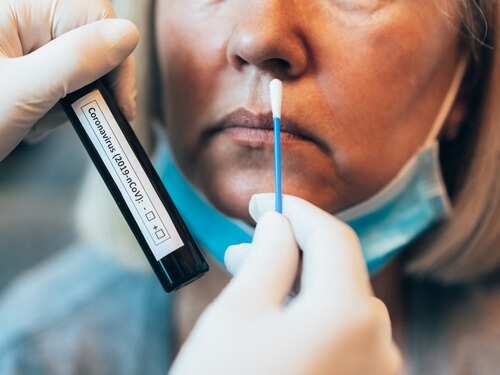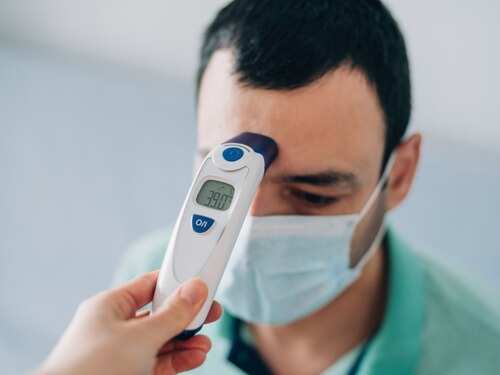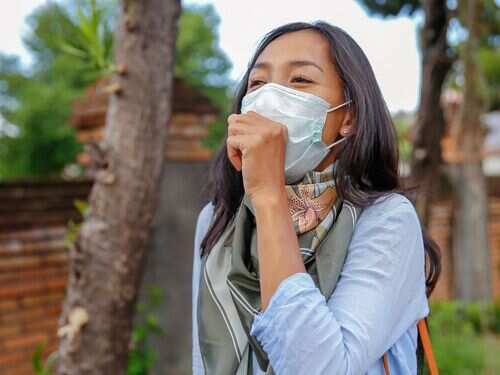Coronavirus: Brazilian, South African COVID Strains Have Reached India, Here Are The Symptoms You Need To Know
01/8Brazilian, South African COVID strains detected in India
After the UK variant, newer COVID strains have found their way into India. As per recent reports, at least 4 people have tested positive with the South African variant (B.1.351 variant) of the virus, and one has tested positive with the Brazil variant (B.1.1.28.1 or P.1 variant). This news comes at a point when the number of cases in India have reached a surprisingly low.
While mutations with any virus are not uncommon, the recent trend of alarming numbers is what makes it so scary. An analysis of cases globally has shown that the newer mutations are more contagious, infectious and may even bring more symptoms than we previously know.
Here's all you need to know about the deadlier COVID strains, and the symptoms to watch out for:
02/8How do Brazil and South African variants differ from the UK strain?

03/8Will vaccines be effective against them?

The prescense of faster-spreading variants and transmissible mutations bring fears that the current vaccines, which are hope for billions across the world may not work as well. Since the newer variants are considered to be more transmissible, the vaccines may or may not be potentially effective against them. However, this is something we can only wait to find out.
Research on the prescense of variants, COVID vaccines efficacy rates is still underway. The Centres for Disease Control and Prevention (CDC) has also observed that the South African variant contains a specific genetic sequence, which could allow it to elude the antibodies produced in the body through vaccines, indicating that the vaccines may be somehow less effective than before.
The only thing we can do is to not be precarious in our approach and follow all norms and safety checks. This is not the time to be diligent, or take the mask off either (even if you have been vaccinated)
04/8Are the symptoms different? What can we expect?

A higher transmission rate could lead to a surge in cases and make all efforts taken to control the pandemic go to waste.
Variants have genetic codes which mean that they can be different in their means of interacting with our body or presenting symptoms. But, since it's a relatively new development, there's not much evidence available on the same right now.
What's being seen is that the people detected with the newer COVID variants and sequences showcase a different plethora of symptoms, which are also different from the classic ones.
Knowing about these symptoms, or the ones who may need to spot will help you take neccessary action quicker. Here are the broad symptoms seen with the newer COVID variants right now:
05/8Muscle aches, body pain

Myalgia is one of the most talked-about COVID symptoms right now. While it is a symptom associated with moderate or severe COVID infections, people being diagnosed with the newer variants are increasingly reporting muscle aches, pains as their initial symptom.
Myalgia or muscle pain in cases of infections like these is caused by damage to the muscle fibres, tissues by the virus itself. It can also strike when there is acute inflammation in the body, or an abnormal reaction by the immune system, unleashing cytokines which can cause abnormal tissue breakdown.
The pain associated with muscular inflammation can be terrible to deal with and often linger for a long, long while.
06/8Chronic fatigue and tiredness

Fatigue is yet another common symptom reported with COVID-19.
While fatigue is also reported with the original strain, it is more commonly reported with the newer strains and mutations.
Chronic fatigue, disorientation, viral malaise can be resultant of high fever and the other symptoms associated with COVID-19. Fatigue can also be a side-effect of active viral replication in the body.
07/8Cough

A persistent cough, along with sore throat has also emerged as symptoms common with the new COVID-19 strain. Again, the precedence of these symptoms is more common with the new strain.
Cough, sore throat, stiffness or inflammation in the throat are often first signs that the virus is replication or fast-spreading in your respiratory system. Symptoms like runny nose and shortness of breath can also be experienced.
08/8Fever, loss of smell less likely to be reported

Surprisingly, what's being noticed is that loss of smell/taste, which is otherwise seen in over 60% of COVID cases is less commonly reported in patients being diagnosed with the test now, making experts feel that the newer variants are less likely to cause problems like these.
Fever is also something which may not be present in all cases. This has also been proved by a recent study. Therefore, do remember that while studies are still underway to support these findings, you should be careful about all possible cOVID signs and symptoms, get tested and isolate yourself.















0 Comments